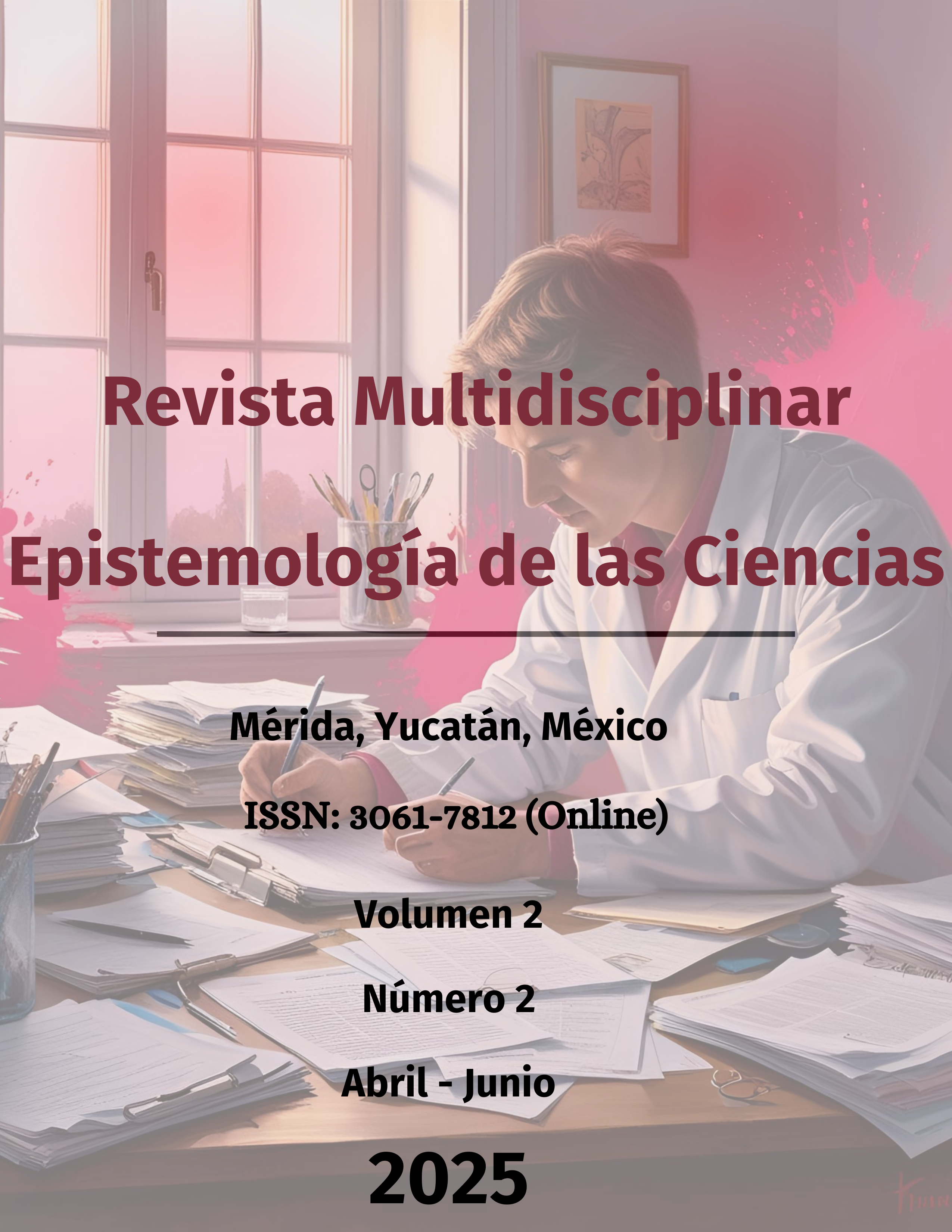Podcast: a didactic resource to reinforce communicative competences in writing and oral skills
DOI:
https://doi.org/10.71112/wdgcfa04Keywords:
Educational technology, creative writing, oral expression, educational resources, communicationAbstract
The main objective of this study was to evaluate the impact of the use of podcasts as a didactic resource in the improvement of oral expression and creative writing skills in ninth grade students of the Instituto Pedagógico de Maicao, in Colombia. For this purpose, at the methodological level, a qualitative and action-research type of research was implemented. The sample was limited to 40 students, under a purposive sampling. Instruments used were field diary, questionnaire and semi-structured interviews. The analysis included a main variable (use of the podcast as a didactic tool) and a series of analysis categories. The results indicated that there was an important change in writing and orality, which were reflected in the production of eight podcast episodes. It was concluded that after applying the strategy, they noticed a significant change in their communicative competencies, as they knew how to articulate ideas and make efficient use of technological tools.
Downloads
References
Bandura, A. (1997). Self-efficacy: The exercise of control. W.H. Freeman and Company. https://psycnet.apa.org/record/1997-08589-000
Celaya, I., Ramírez-Montoya, M. S., Naval, C., & Arbués, E. (2020). Usos del podcast para fines educativos. Mapeo sistemático de la literatura en WoS y Scopus (2014-2019). Revista Latina de Comunicación Social, (77), 179–201. https://www.doi.org/10.4185/RLCS-2020-1454 DOI: https://doi.org/10.4185/RLCS-2020-1454
Cevallos, N. (2021). Aportes del podcast como estrategia didáctica para el desarrollo de la comunicación oral en el área de Lengua y Literatura en la Unidad Educativa “Madre de la Divina Gracia” periodo 2020-2021 [Tesis de pregrado, Universidad Central del Ecuador]. http://www.dspace.uce.edu.ec/handle/25000/26500
Deci, E. L., & Ryan, R. M. (1985). Intrinsic motivation and self-determination in human behavior. Plenum. https://selfdeterminationtheory.org/SDT/documents/2000_RyanDeci_SDT.pdf DOI: https://doi.org/10.1007/978-1-4899-2271-7
Ericsson, K. A., Krampe, R. T., & Tesch-Römer, C. (1993). The role of deliberate practice in the acquisition of expert performance. Psychological Review, 100(3), 363–406. DOI: https://doi.org/10.1037//0033-295X.100.3.363
Falcón, V. (2023). Escritura creativa y podcasting en competencias comunicativas de estudiantes de secundaria, Ica 2022. Ciencia Latina Revista Científica Multidisciplinar, 7(1), 2271–2287. https://doi.org/10.37811/cl_rcm.v7i1.4590 DOI: https://doi.org/10.37811/cl_rcm.v7i1.4590
González, E. (2021). Caminos de la comunicación educación Podcast [Trabajo de grado, Universidad Distrital Francisco José de Caldas]. http://hdl.handle.net/11349/26172
Hernández, R., Fernández, C., & Baptista, P. (2014). Metodología de la investigación (6.ª ed.). McGraw-Hill. https://dialnet.unirioja.es/servlet/libro?codigo=775008
Kolb, D. (1984). Experiential learning: Experience as the source of learning and development. Prentice-Hall. https://books.google.com/books/about/Experiential_Learning.html?id=zXruAAAAMAAJ
Krashen, S. (1985). The Input Hypothesis: Issues and Implications. Longman. https://books.google.com/books/about/The_Input_Hypothesis.html?id=5ttoAAAAIAAJ
Laboratorio de Economía de la Educación. (2021). Informe No.031 Retos en las capacidades de comprensión lectora en Colombia. https://lee.javeriana.edu.co/documents/5581483/7046588/INFORME-31-Retos-capacidades-comprensio%CC%81n-lectora-LEE-PUJ.pdf
Laurillard, D. (2012). Teaching as a design science: Building pedagogical patterns for learning and technology. Routledge. https://revistascientificas.us.es/index.php/fuentes/article/view/5396
Lewin, K. (1946). Action research and minority problems. Journal of Social Issues, 2(4), 34–46. https://doi.org/10.1111/j.1540-4560.1946.tb02295.x DOI: https://doi.org/10.1111/j.1540-4560.1946.tb02295.x
López, N. (2002). El análisis de contenido como método de investigación. XXI. Revista de Educación, 4, 167–180. https://dialnet.unirioja.es/servlet/articulo?codigo=309707
Palfrey, J., & Gasser, U. (2008). Born digital: Understanding the first generation of digital natives. Basic Books. https://books.google.com.co/books?id=wWTI-DbeA7gC
Pérez Gómez, Á. (2015). La cultura escolar en la sociedad neoliberal: La educación en las redes. Ediciones Morata.
Prado Laura, J. (2018). Eficacia del podcast en la mejora de la expresión oral en inglés en estudiantes del nivel básico del centro de idiomas de la Universidad Peruana Unión Filial Juliaca – 2018 [Tesis de maestría, Universidad de San Martín de Porres]. https://repositorio.usmp.edu.pe/bitstream/handle/20.500.12727/6897/prado_lji.pdf?sequence=1&isAllowed=y
Reis, R., & Fernandes, S. (2020). O podcast como recurso inclusivo no ensino remoto. Revista Brasileira de Educação Especial, 26(2), 10–22.
Vygotsky, L. S. (1978). Mind in society: The development of higher psychological processes. Harvard University Press.
Zúñiga Vega, E. (2020). Desarrollo de competencias comunicativas utilizando los audios y videos en los estudiantes de 4-1 [Trabajo de grado, Universidad Cooperativa de Colombia]. https://hdl.handle.net/11323/7819
Downloads
Published
Issue
Section
License
Copyright (c) 2025 Multidisciplinary Journal Epistemology of the Sciences

This work is licensed under a Creative Commons Attribution 4.0 International License.











